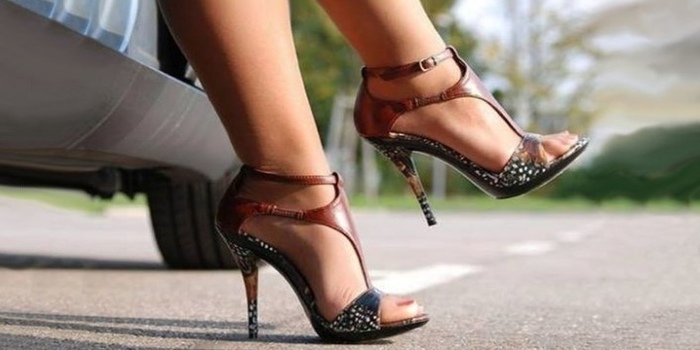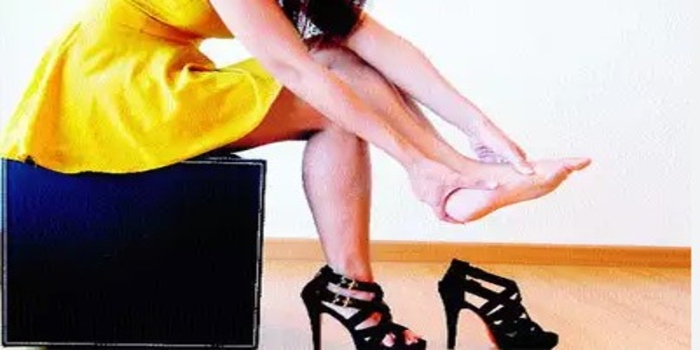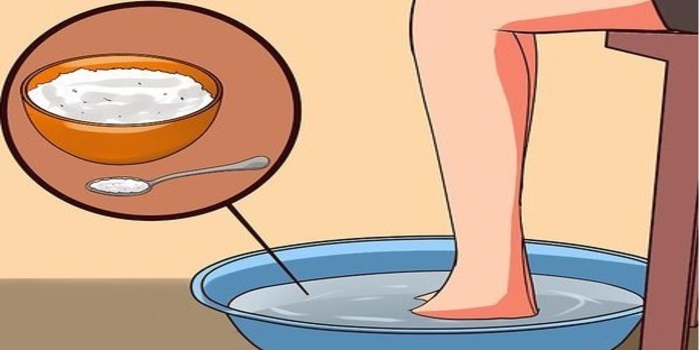How high-heels are bad for feet and body
Nov 05, 2023 By Madison Evans
High heels have long been associated with style, elegance, and confidence. Without heels, we often feel that the perfect party look is incomplete, but you cannot deny the fact that flats and sneakers are more comfortable than heels. Yet for women, a pair of high stilettos are a staple fashion accessory that they have worn for centuries for daily office attire or a party, but the relief you feel after taking them off after an entire day is the best.
Unfortunately, sometimes fashion costs way more than the price on the label. Although high heels have an appealing appearance, the strain they cause on your feet and body is what we often overlook. Women suffer from a plethora of side effects from wearing high heels for prolonged periods and on a regular basis. Continue reading the article to find out why wearing high heels could have an adverse impact on your body. In this article we will tell you 5 ways your high heels can harm your feet and body.
5 Ways Your High Heels Can Harm Your Feet and Body

In this article, we will explore five of the potential problems our most cherished high heels may be silently causing to our feet and overall health. We have jotted down some of them for you in this article to read. Hope it will be informative.
Foot Deformities
Wearing high heels regularly can contribute to the development of foot deformities. Conditions such as bunions, where the big toe points inward toward the other toes, and hammertoes, characterized by abnormal bending of the smaller toes, are common among heel enthusiasts. The unnatural positioning of the feet in high heels can lead to the misalignment of joints and, over time, cause permanent deformities that may require medical intervention.
Joint and Back Pain
The alluring lift provided by high heels alters the body's natural alignment, placing increased pressure on the knees, hips, and lower back. Your entire movement and comfort are affected by this misalignment that can cause long-term effects of wearing high heels, like joint pain and backaches. If worn for an extended period of time, these high heels can cause the risk of developing musculoskeletal problems or worsen prior existing common illnesses such as arthritis.
Achilles Tendon Issues
High heels force the foot into a pointed position, causing the Achilles tendon to shorten and tighten. This can result in Achilles tendonitis, a painful condition characterized by inflammation of the tendon. Over time, this chronic strain on the Achilles tendon may lead to reduced flexibility and an increased susceptibility to injuries during physical activities. This type of problem is also in the list of 5 ways your high heels can harm your feet and body.
Balance and Stability Challenges
The elevated heel of high shoes alters your center of gravity, making it more challenging to maintain proper balance. The risk of falling and ankle injuries may increase as a result of this increased instability. Over the years, research has shown that donning high heels may have an adverse effect on proprioception, the body's sense of its position in space, which is essential for keeping balance and avoiding injuries.
Problem in Blood Circulation
Certain high-heeled shoes have shapes that hamper the blood circulation in the feet, which could also cause issues such as swelling, feeling of numbness, and tingling. It can also result in varicose veins by blocking blood circulation for an extended period of time and can cause veins to twist or enlarge.
How to wear high heels without pain?

It's not possible to completely prevent pain while wearing high heels; however, there are ways you can opt for to lessen the possibility of suffering from pain. Explore the following recommendations from us:
Select a Friendlier Heel
While selecting heels, you can choose a short and broader heel, like platform heels or wedge heels. A 2-inch heel, as compared to 4 4-inch heel, would cause less discomfort. An open-toed or wide box heel also keeps you at a bit of ease.
Look For the Perfect Size
A tip for buying the right size of heels is to buy it at the end of the day when your feet are swollen, that will help you avoid buying too tight heels.
Use Insoles
Insoles are soft cushioning under your feet that provide comfort, distribute weight, and lessen the pressure on the ball of your foot.
Wear Heels Occasionally
Try avoiding standing or walking in heels for more extended periods. When you know you won't be standing for an extended period of time, like at a conference, try to save your heels for those times. And even if you wear heels all day, make sure to take frequent sitting rests.
Effective Ways to Relieve Your Foot Pain After a Day in High Heels

While they may be a fashion statement, high heels do not have to cause discomfort in the feet. You can ensure that your feet feel as amazing as the rest of you and alleviate soreness by implementing the following techniques into your post-high-heel routine. Keep in mind that maintaining your feet is a minor but essential step toward your general well-being.
- Soak your feet in a hot tub of water to relieve pain
- Treat blisters by sealing them with plaster
- Treat yourself with a foot massage
- Get a pedicure done
- Feet stretching
- Go barefoot or wear comfortable flats or sneakers
Conclusion
Whereas high heels make you look more attractive and feel confident, we should also be well aware of the potential harm they can have on your feet and overall health in general. After reading this article, you must be well informed that your feet, after wearing high heels for years daily, can lead to chronic health conditions such as back and hip pain and other foot abnormalities.
Despite all the problems, high heels will always be a fashion statement for women, and to think about tossing your Christian Louboutins or Jimmy Choos is basically a nightmare for many. Hence, we would suggest you maintain both style and well-being by considering incorporating lower-heeled or flat shoes into your wardrobe and reserving those stunning stilettos for special occasions. Prioritizing foot health today can lead to a more comfortable and pain-free future. Here are the 5 ways your high heels can harm your feet and body that must need your attention before it's too late.







